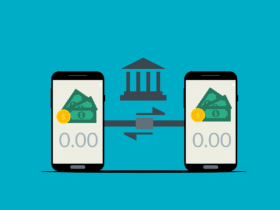Practicing cyber hygiene is much like taking care of your personal hygiene needs. It can be repetitive and boring. Cyber hygiene also works best if practiced continually. Still, building a routine makes you a tough nut to crack, no matter what cyber attacks hackers try to throw at you. Master our cyber hygiene tips, invest a little time in them now and again, and avoid major cybersecurity problems in the future.
Maintaining Your Operating System, Programs, and Apps
No software is perfect. Some features might not work properly, or the interface may be clunky. More importantly, it’s likely that everything from the OS that drives your phone to your favorite weather app has some kind of security vulnerability. Developers constantly race against hackers and strive to patch newly discovered exploits immediately.
Their efforts only work if you ensure automatic updates are on by default for all your software. Phones handle this automatically, so double-check that you didn’t accidentally disable this option. Most computer programs will patch themselves nowadays, but it doesn’t hurt to check for updates manually.
You should also regularly assess your usage habits. Identify which programs and apps you no longer use and remove them. This frees up space while reducing your attack surface. Keep an eye out for software that isn’t receiving updates anymore. Delete it before it becomes a backdoor into your devices.
Safeguarding Accounts
Having adequate personal cyber hygiene habits isn’t a cure-all. Companies that don’t have a strong cybersecurity posture fall victim to costly data breaches that can expose your account credentials. You can do two things to minimize or even completely negate their impact.
First, make sure you’re not using duplicate or easy-to-guess passwords. That way, hackers who gain access to an account can’t use methods like credential stuffing to take over other accounts since none will share the same details. The easiest way is to use a password manager to generate passwords for you and store them inside its encrypted vault.
Additionally, set up multi-factor authentication for crucial accounts like email, socials, work-related services, etc. Doing so will make it almost impossible for someone with a breached password to access their account since they can’t provide the second form of authentication MFA creates.
Practice Safe Browsing
How you connect to the internet matters. Home networks are generally secure, but you should still use a firewall to block sites from downloading malware and prevent unknown connections that want to access your devices.
Using public Wi-Fi is more dangerous since fewer safeguards exist, and even unskilled hackers can monitor or create fake access points. The safest way to use such connections is through virtual private networks due to encryption.
The advantages of VPNs are evident as they secure the entire connection with an encrypted tunnel, causing any data you transmit to arrive at its destination safely and anonymously. Using one prevents eavesdropping and makes tracking based on your IP address impossible.
Knowledge plays a key part in maintaining safe browsing habits, too. At the very least, you should know how to recognize phishing emails and have the common sense not to open attachments or click on links inside such suspicious messages. Emerging tech like AI is making identifying phishing emails and other threats harder. Keeping up with the latest cybersecurity news will take you one step ahead.
Manage Your Personal Information and Privacy
Social media encourages us to share everything from last night’s meal to our hopes and dreams with an online audience. While sharing can be fun, it’s also a way to unwittingly expose private and sensitive information you’re uncomfortable with others knowing. You don’t need to disclose such info directly. A clever observer can infer your location, working hours, and even passwords or answers to security questions based on your post history.
Start by setting your social accounts to private. That will limit their discoverability and only allow friends to view your profile in detail. Vet your online friends, ensuring you’re only connected with people you trust and deleting inactive or unknown contacts. Expand your friend circle carefully as well.
Posting and interacting with more forethought will prevent undesired information from ending up online. However, that doesn’t address the digital footprint you’ve likely built up through years of careless internet use.
Much of this information is available freely and publically, allowing data brokers and people-finder sites to profile and profit from you. Consider using a trusted data removal service to take down such data on your behalf and save time while being more thorough than you ever could.
Conclusion
As you can see, maintaining proper cyber hygiene isn’t so bad. It might feel like a chore at first, but changing a few habits and checking in on your software does wonders for your cybersecurity resilience. Start using our advice and reap the benefits without breaking a sweat!


















